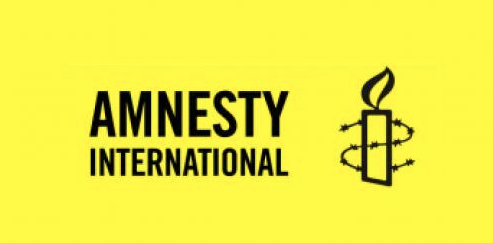On November 20, Amnesty International will appear before the United Nations Committee Against Torture (CAT) in Geneva, highlighting ongoing and new concerns that Canada is falling short of its international obligations to prevent and address torture and ill-treatment.
While the Canadian government has taken a number of positive steps since its last review before the UN CAT in May 2012, there is still much to be done to strengthen laws, policies and other measures so as to fully implement the prohibition against torture and other forms of cruel, inhuman or degrading treatment or punishment.
In a written submission and oral presentation to the Committee, Amnesty International is highlighting numerous concerns regarding Canada’s shortcomings with respect to torture and ill-treatment, including violence against Indigenous women and girls, coerced or forced sterilization of Indigenous women, policing of Indigenous protests, redress for survivors of torture, refugee protection, immigration detention and solitary confinement.
“The prohibition against torture is an essential human rights safeguard, which allows no exception in any circumstances. Canada regularly professes its strong support for global efforts to eradicate torture and must back that up with scrupulous determination to both ensure it does not occur within the country and that Canadian actions do not contribute to its commission abroad,” said Alex Neve, Secretary General of Amnesty International Canada. “It is not enough to avoid carrying out torture directly, Canada must avoid complicity in torture in other countries. There is more to be done on both fronts.”
Amnesty International is calling on the UN CAT to make the following recommendations to Canada:
Develop a National Action Plan to prevent and address genderbased violence, including provisions that recognize and address disproportionate rates of violence against Indigenous women, girls and two-spirit people.
Ensure that recent, deeply troubling instances of forced or coerced sterilizations of Indigenous women in Canada are investigated, justice is provided to survivors and their families, and all government policies across Canada are reformed to explicitly prohibit sterilization without free, full and informed consent.
Conduct an independent investigation into the Ontario Provincial Police’s illtreatment of five Mohawk men who were detained and unlawfully held in painful nylon restraints for hours, following protests at Tyendinaga, Ontario in April 2008. Their mistreatment has been documented in a report by the Toronto Star.
Promptly provide fair reparations, including compensation and an official apology, to Abousfian Abdelrazik for the role Canadian officials played in the circumstances leading to the torture and other serious human rights violations he suffered in Sudan between 2003 and 2009. The Canadian government has, to date, delayed and obstructed Abdelrazik’s effort to obtain the redress to which he is entitled under international law.
Rescind or suspend the application of the Safe Third Country Agreement with the United States, unless and until the treatment of refugees and migrants in the United States meets international human rights standards, including the absolute ban on torture and illtreatment.
Enforce the absolute prohibition on deporting individuals to countries where they face a serious risk of torture, including in the case of Mohamed Harkat.
Build on important advances in reducing the use of immigration detention by setting a maximum time limit so as to avoid the possibility of individuals being indefinitely detained for immigration purposes.
Amend the recent proposal to reform Canada’s system of solitary confinement (previously termed “administrative segregation”) through the institution of newly created “structured intervention units” so as to meet international human rights requirements, including ensuring this practice is not used disproportionately against Indigenous prisoners, is never used against people with mental health illnesses, is strictly timelimited and is subject to independent oversight.
“One long overdue step forward for Canada is to finally become party to the torture-prevention scheme of prison inspections established by the UN in 2002 through the Convention against Torture’s Optional Protocol,” said Andréanne Paquet, directrice générale par interim, Amnistie international Canada. “In May 2016, the Trudeau government made a public commitment to join the Optional Protocol, but two and a half years later that has not happened, and the government has more recently equivocated in its commitment. Canada cannot press other nations – where torture is rampant – to open their prisons to scrutiny, unless and until we take that step ourselves.”
Amnesty International is also disappointed the Canadian government continues to maintain that violence by non-state actors, including violence against Indigenous women, girls and two-spirit people in Canada, should not be considered to be torture under the UN Convention against Torture. The government argues that “acquiescence” for the purposes of the UN definition of torture should be interpreted very narrowly and rejects the due diligence framework for preventing and addressing torture by private actors, adopted by the UN CAT over ten years ago.
“It is concerning that the Trudeau government, with a strongly professed feminist commitment to addressing violence against Indigenous women, would hold the troubling position that government failure to assert due diligence in preventing violence by private actors is not the relevant test for defining torture,” highlighted Alex Neve. “The UN CAT rejected Canada’s problematic and outdated view in 2012 and took a strong stand against the entrenched, longstanding violence experienced by Indigenous women, girls and two-spirit people. Amnesty International calls on the Committee to again dismiss Canada’s efforts to undermine the advances that have been made in recognizing that gender-based violence can and often does amount to torture.”
For more information, or to arrange an interview, please contact:
Lucy Scholey, Amnesty International Canada (English)
W: 613-744-7667 ext. 236
C: 613-853-2142
lscholey@amnesty.ca













